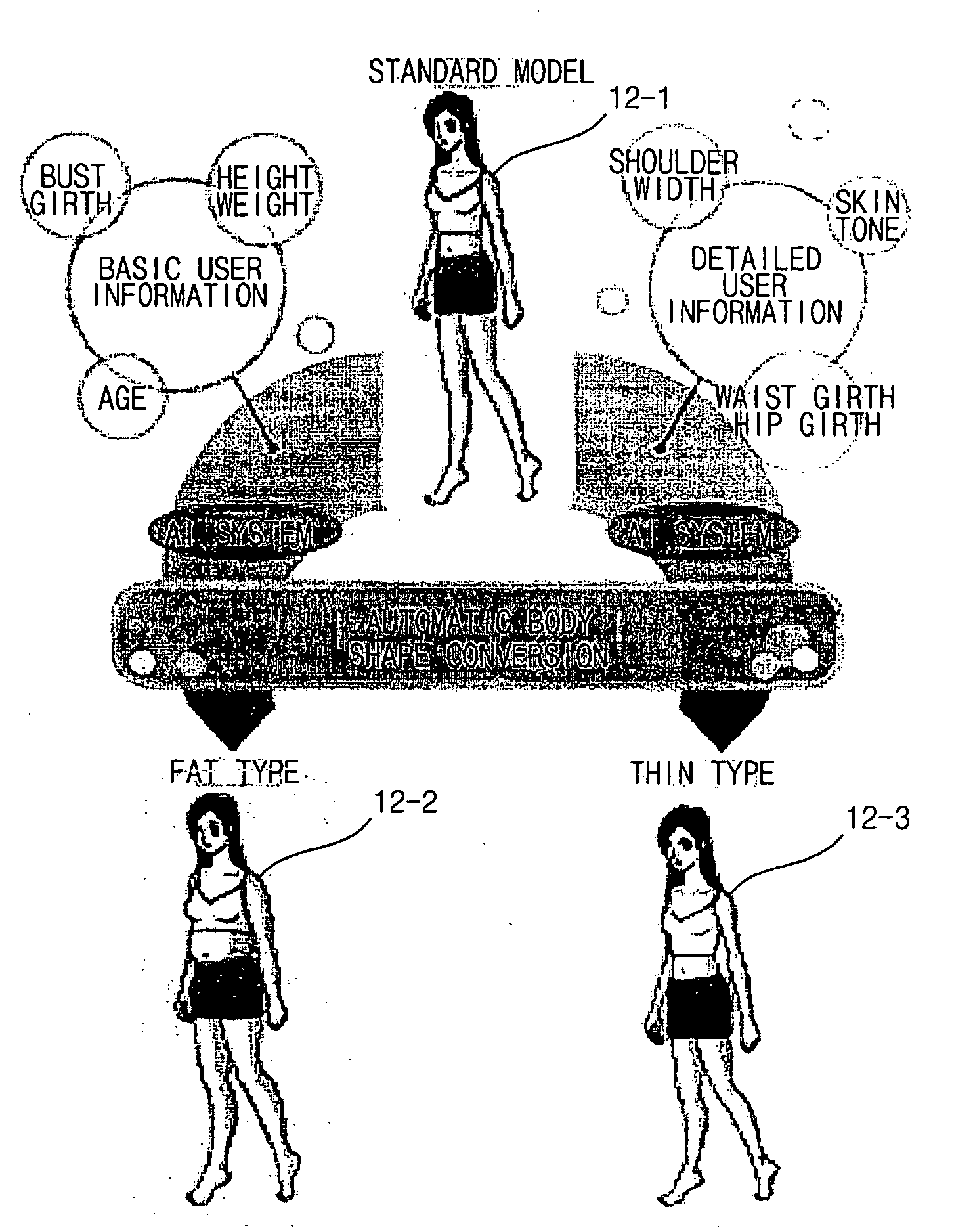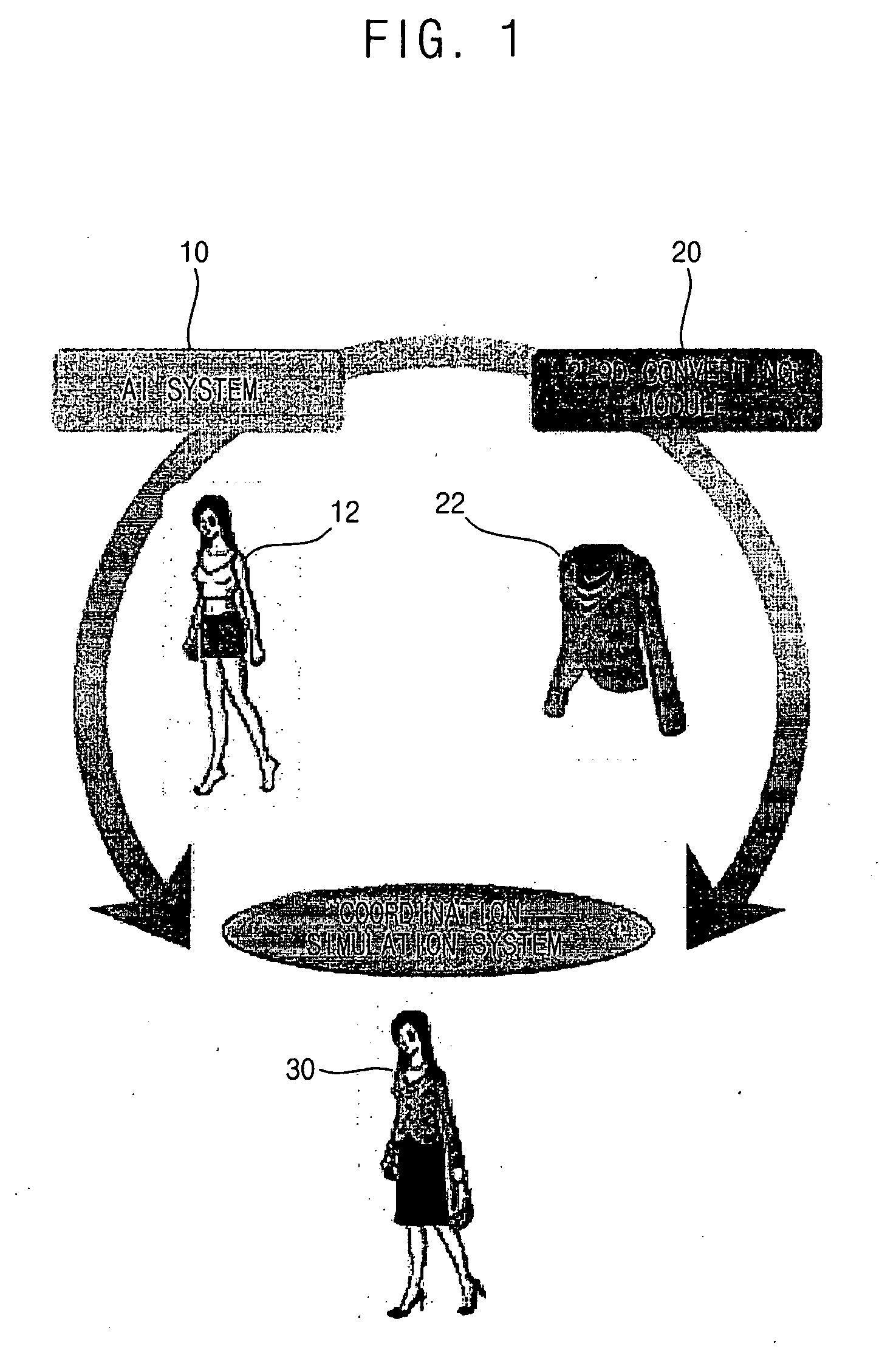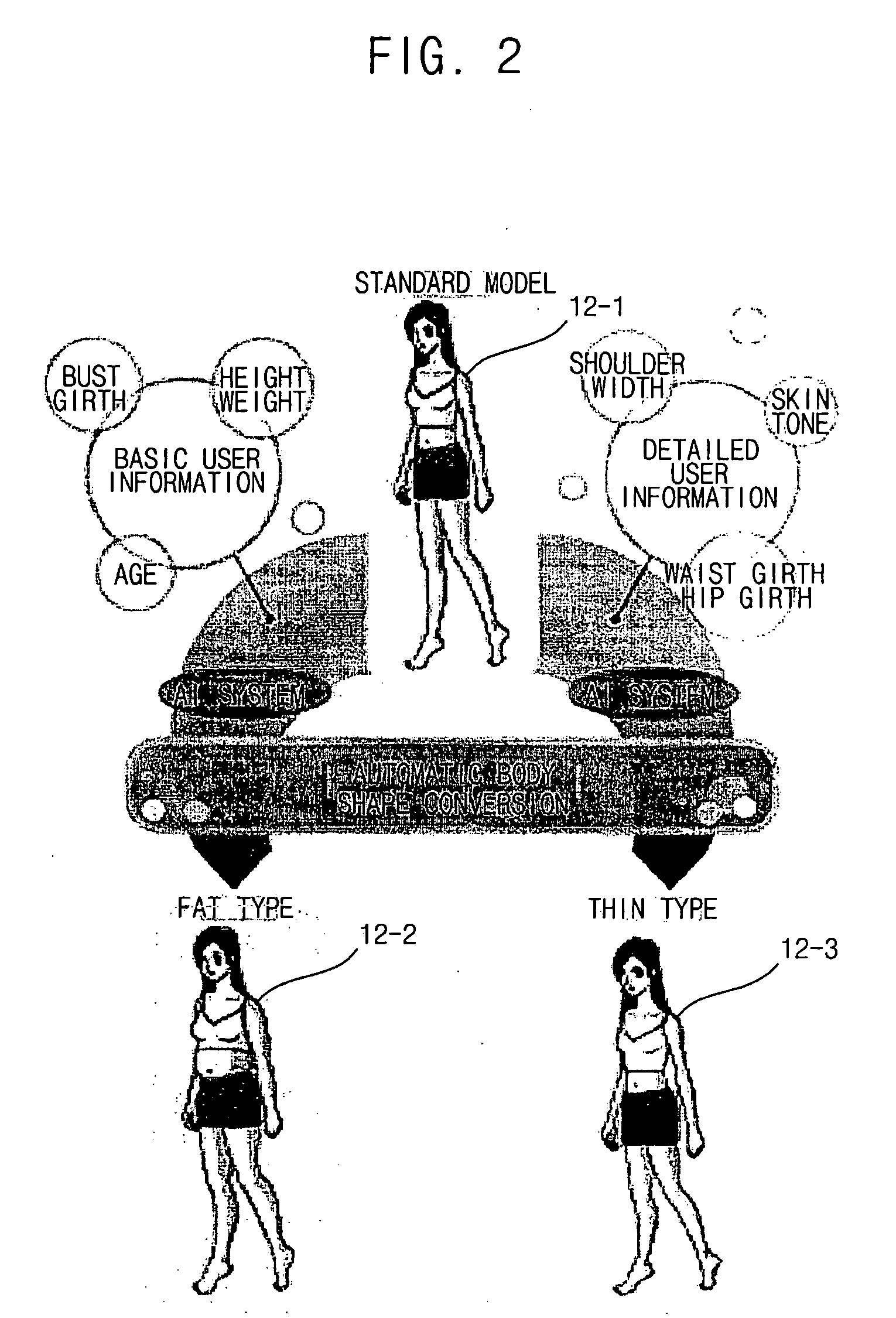Method for converting 2d image into pseudo 3d image and user-adapted total coordination method in use artificial intelligence, and service business method thereof
a technology of total coordination and 2d image, applied in image generation, knowledge representation, instruments, etc., can solve the problems of low production efficiency, low production efficiency, and low degree of automation, and achieve the effect of high production and development costs
- Summary
- Abstract
- Description
- Claims
- Application Information
AI Technical Summary
Benefits of technology
Problems solved by technology
Method used
Image
Examples
Embodiment Construction
[0100]It should be understood that the example embodiments of the present invention described below may be varied modified in many different ways without departing from the inventive principles disclosed herein, and the scope of the present invention is therefore not limited to these particular following embodiments. Rather, these embodiments are provided so that this disclosure will be through and complete, and will fully convey the concept of the invention to those skilled in the art by way of example and not of limitation.
[0101]Hereinafter, the present invention will be described in detail with reference to the accompanying drawings.
[0102]FIG. 1 is a conceptual view illustrating a pseudo-3D image converting module and a user-adapted total clothes coordinating method using artificial intelligence according to an example embodiment of the present invention. Referring to FIG. 1, the coordination system comprises an artificial intelligence (AI) system 10 that generates a pseudo-3D us...
PUM
 Login to View More
Login to View More Abstract
Description
Claims
Application Information
 Login to View More
Login to View More - R&D
- Intellectual Property
- Life Sciences
- Materials
- Tech Scout
- Unparalleled Data Quality
- Higher Quality Content
- 60% Fewer Hallucinations
Browse by: Latest US Patents, China's latest patents, Technical Efficacy Thesaurus, Application Domain, Technology Topic, Popular Technical Reports.
© 2025 PatSnap. All rights reserved.Legal|Privacy policy|Modern Slavery Act Transparency Statement|Sitemap|About US| Contact US: help@patsnap.com



